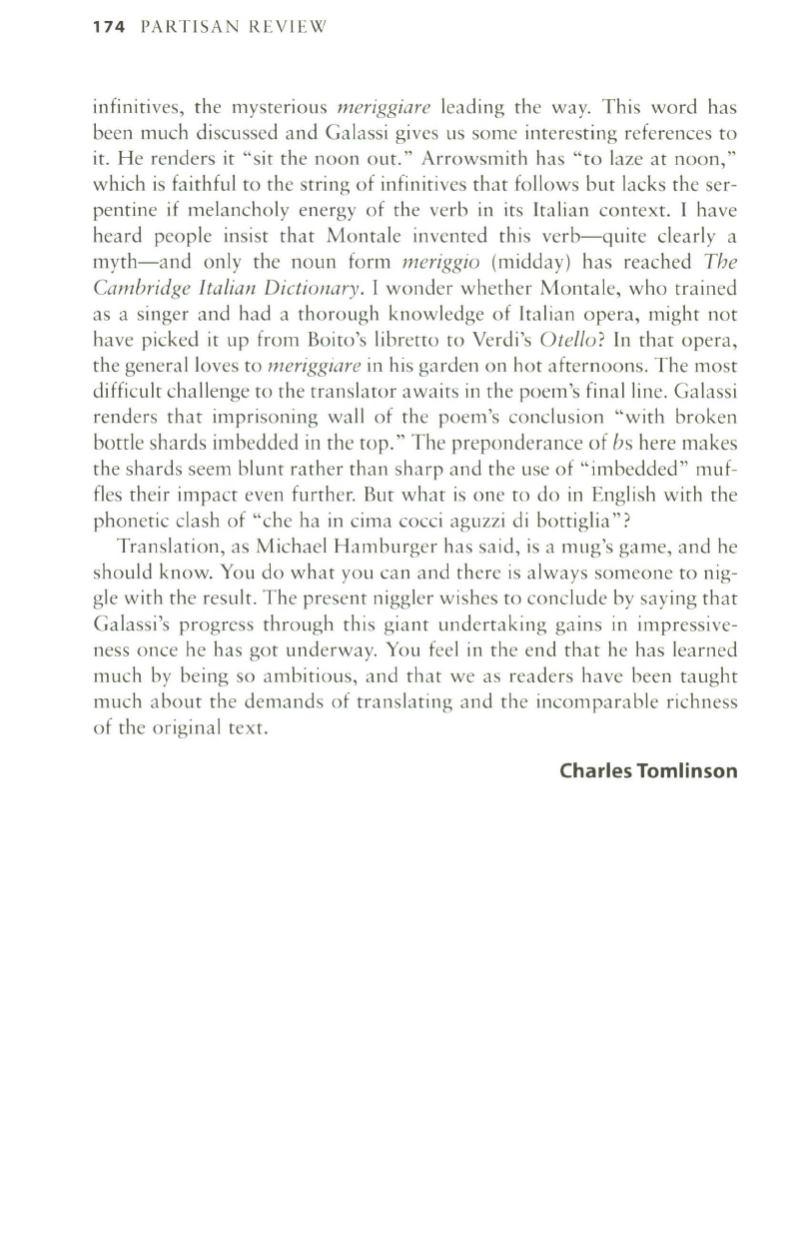
174
PARTISAN REVIEW
infinitives, the mysterious
meriggiare
leading the way. This word has
been much discussed and Galassi gives us some interesting references to
it. He renders it "sit the noon out." Arrowsmith has "to laze at noon,"
which is faithful to the string of infinitives that follows but lacks the ser–
pentine if melancholy energy of the verb in its Italian context. I have
heard people insist that Montale invented this verb-quite clearly a
myth-and only the noun form
meriggio
(midday) has reached
The
Cambridge Italian Dictionary.
I wonder whether Montale, who trained
as a singer and had a thorough knowledge of Italian opera, might not
have picked it up from Boito's libretto to Verdi's
Otello?
In that opera,
the general loves to
meriggiare
in his garden on hot afternoons. The most
difficult challenge to the translator awaits in the poem's final line. Galassi
renders that imprisoning wall of the poem's conclusion "with broken
bottle shards imbedded in the top." The preponderance of
bs
here makes
the shards seem blunt rather than sharp and the use of "imbedded" muf–
fles their impact even further. But what is one to do in English with the
phonetic clash of "che ha in cima cocci aguzzi di bottiglia"?
Translation, as Michael Hamburger has said, is a mug's game, and he
should know. You do what you can and there is always someone to nig–
gle with the result. The present niggler wishes to conclude by saying that
Galassi's progress through this giant undertaking gains in impressive–
ness once he has got underway. You feel in the end that he has learned
much by being so ambitious, and that we as readers have been taught
much about the demands of translating and the incomparable richness
of the original text.
Charles Tomlinson


